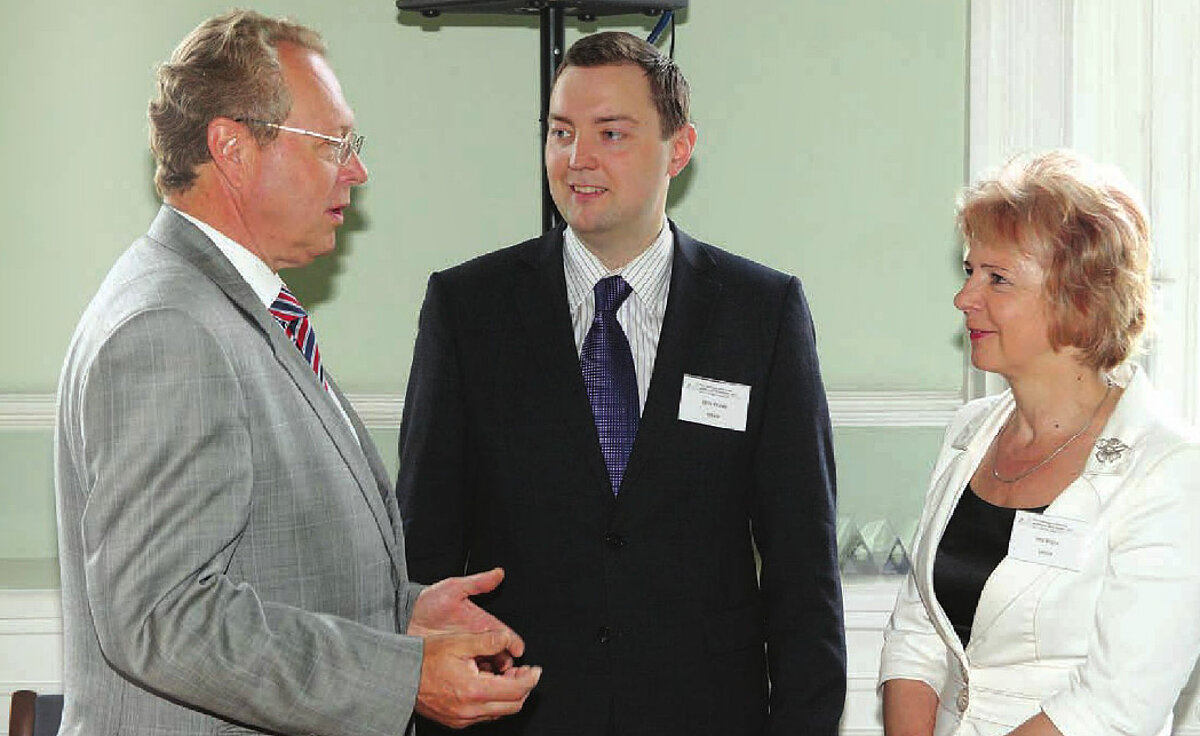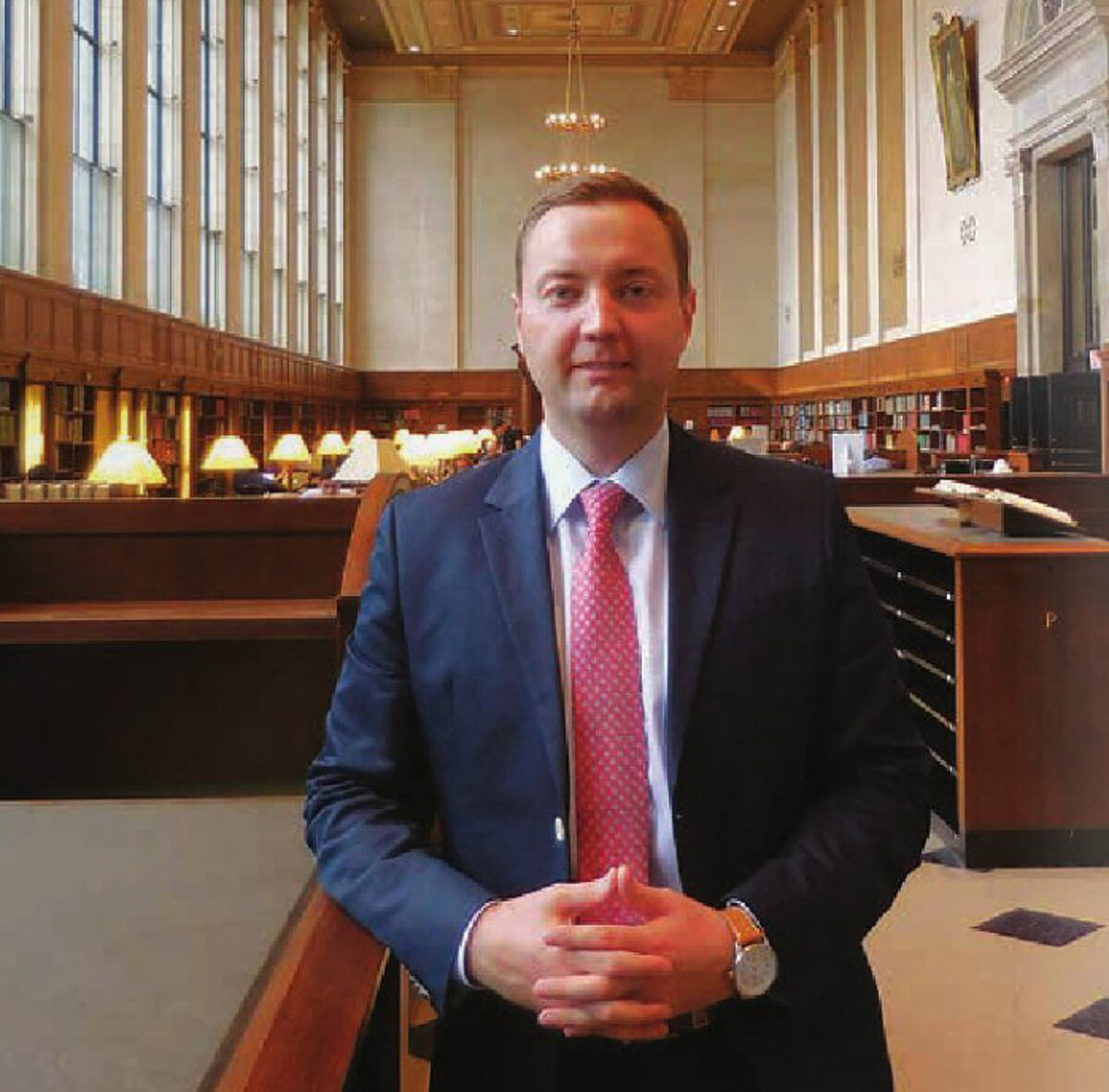
How did you decide to connect your life with Economics?
As it is with many people, the subjects I was good at at school determined my choice of profession. They were Physics, Chemistry, Biology, Mathematics and Economics. The last one seemed the most interesting to me because it was new in the secondary school curriculum. I was immensely interested in the way markets as well as consumer society exist and behave – how, for example, we react to different things, such as discounts. State economics, finance sector and budget planning attracted my attention alongside with tax policy, its making and implications. I am sure that when one is competent in these spheres and realises how these economic notions influence future, it is easier to make sensible decisions today. The topics mentioned had begun to occupy my mind rather early, so at the University I purposefully chose Economics as the first priority. I successfully passed the competition and have never regretted the fact I chose Economics.
You mentioned in an interview that visiting the USA had been a dream.
As you can see from world rankings, the best universities are mostly situated in the US, so I was interested to see how things work at the international level. I believe that such communication is important for an academic career because it gives knowledge and ideas to share with our University students and provides us with opportunities for professional and personal growth. There are various ways to go to the US, and I have heard of various experiences. I looked through the list of top universities and addressed the professors who worked in similar areas – microeconomics, macroeconomics, marketability issues, consumer behaviour and market behaviour.
Among the many academics whom I addressed there were professors from Columbia University in the City of New York who responded in a very laconic way: ‘Let’s do this’. As a result, the most exciting period in my life started connected with one of the best Universities not only in the US but also in the world.
Before that, I had never been to the US, everything I knew about it came from films, books, the experience of friends and colleagues. I myself lived in New York City, a global power centre, and carried out academic and research work in Columbia University – isn’t that a fantastic combination? It was an exceptionally interesting, dynamic and multicultural environment.
I am glad and grateful that during my academic training and research in the US I received support from the Baltic-American Freedom Foundation.
What did you do there?
I began my visit in winter and the weather was not very encouraging – there were many snowstorms, even more than in Latvia. Therefore I used my time very efficiently indoors – I worked on my research articles and actively participated in research conferences organised at Columbia University, attended by internationally acclaimed economists. It was a unique chance to meet the authors of the books that I had studied from, and that my students were now studying from. I went to seminars where professors and doctoral students presented research papers and their outcomes. It was valuable to see and hear what my colleagues were doing, what methodologies they employ.
What part of your new experience you would like to share here in Latvia?
There is definitely personal experience, which is not so easy to communicate – intellectual and emotional, born during life on the university campus and communication with colleagues. It was a unique environment. This incredible experience is very individual. But I also collected many technical things that can be successfully implemented in our studies and research here.
Many people ask about difference between Universities in our country and in the US but I would like to point out the common features. They are, for example, e-studies, Moodle, which is used in all good universities the world over and the University of Latvia has it too. This online environment may be called differently in different universities but the essence of it is the same – students can use materials in electronic format without going to the university in person and at the same time missing nothing. I am happy that rector of the UL M. Auziņš supported the project LU Open Minded which gave access to new knowledge for the wider public. Open Minded recorded lectures, which can be found on Youtube, are an excellent tool for many people to learn something new and real help for students learning new material.
I would like to launch here in Latvia the same kind of student journal that is published at Columbia University. The journal is created by students and devoted to the publication of their best research papers. This is a matter of prestige for them. I would like to initiate a similar journal of Economics at the University of Latvia. We are already working on this idea and want to announce student involvement in this project in September. I hope that the first issue will see the daylight in February. The journal will be published twice a year and will contain the papers of the most capable students.
The publishing of the journal has three purposes. First, students who participate in the creation of it gain experience in editing, management, organisation etc. Second, students receive a chance to publish their works and this is an additional bonus because publication can be mentioned in their CVs. The third benefit is that the journal will acknowledge students’ talents and demonstrate their intellectual capacity, which is useful for future students to see and compare.
Each year, I offer students to write essays on different topical themes where they can demonstrate knowledge, analytical skills, creativity, define and support their opinion. For example, why do we buy things we don’t need? There were many interesting essays, written at high quality level, but the authors were rewarded with high marks only. I considered the works as deserving of more acknowledgement and this can be realised through publishing. We intend to publish the journal in Latvian and in English in order to involve exchange students who study at our university in English and to develop our international connections.
Nowadays, if you apply for different scholarships, social and creative activities are extremely important because they demonstrate your initiative and determination. It is no longer sufficient to have high marks.
You claim, therefore, that there is no big difference between Latvian and US universities?
You can ask why Harvard University is top 10 in the world but the University of Latvia is not? Why are so many prestigious universities in the US? The answer is not simple but there is a number of reasons. First, there are differences in the amount and attraction mechanisms of financing. Substantial funding allows employing and attracting different resources. Second, they place more emphasis on research than on studies. This means that professors are mostly occupied with research and less are in contact with students. This is a weak point from a subjective point of view. In Europe, on the contrary, professors are more involved in the process of studies. I give lectures, organise seminars, read the essays of my students, assess tests etc. Doing this I know my students, their abilities and personalities. Alongside I do research.
In addition, there is a tradition of sponsors that provides a lot of financing for research and development. I am glad that the University of Latvia with the help of the UL Fund develops the tradition of education sponsorship. I myself as a graduate of the UL, donate annually to different university activities. I think that when this culture of sponsorship and donation develops and each graduate feels the necessity to support the university declaring in this way his or her fidelity, the university will receive the necessary money for research, science and the support of students. All of this takes time. The US has gone much farther in this field, they operate on a different scale.
In the whole, my US experience is invaluable, but still, we have our own traditions, our own system with its peculiarities. I remain sure that University of Latvia is the best university in Latvia and one of the leading universities in the Baltics. We develop, and we do so in the right direction.
Could you tell us more about your research?
The issue of a trade embargo with Russia is topical today. Russia banned the import of certain goods about one year ago. Europe is in search of new markets. I recently presented two research articles on the topic with primary results of my research at the 11th International Strategic Management Conference in Vienna. Together with the co-author from the University of Aveiro in Portugal we studied the original situation and probable future effects on the economies of Russia and the EU.
Only one year has passed since. Traders are trying to find solutions and we continue our research. The problem is not resolved still, it is very probable that sanctions will be extended for another year. Russia has closed its market and even if it opens six months later, the question remains whether European goods will still find a place in it. Perhaps Russia will fill the niche partly with its own goods and partly with the goods of other countries. It is clear, however, that the replacement of goods has occurred and this data should be studied and analysed.
As an economist, I am very interested in following the embargo period changes in the Latvian milk and fish industries – how will export directions and production capacities change? This is a vast field of investigation because internationalisation and globalisation levels are very high and all countries depend on each other. If something changes in one place, it causes a chain reaction and something changes everywhere.
This is just one of the more topical directions of my current research.
You have worked in different countries – Estonia, Lithuania, Poland, Portugal, Germany and elsewhere. Now you have been to the US. Where are you going next?
Yes, I appreciate having worked at universities in different countries. However, when I choose a destination, my main purpose is a certain university where I want to work, establish new contacts and meet new colleagues, while the country is secondary. Every country I have visited, I have done so because of the university, not the country.
I choose my destinations purposefully and if I go somewhere, I try to establish long-term collaboration. It is a good thing when after such a visit you can work on new projects together with your colleagues from other countries because it demonstrates the participation of the University of Latvia in the process of internationalisation.
By this time, a stable circle of colleagues and collaboration partners has been formed and we have in view some common projects, among them international ones. At present, I plan to take on some professional challenges here in Latvia.

 LU konference
LU konference